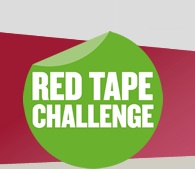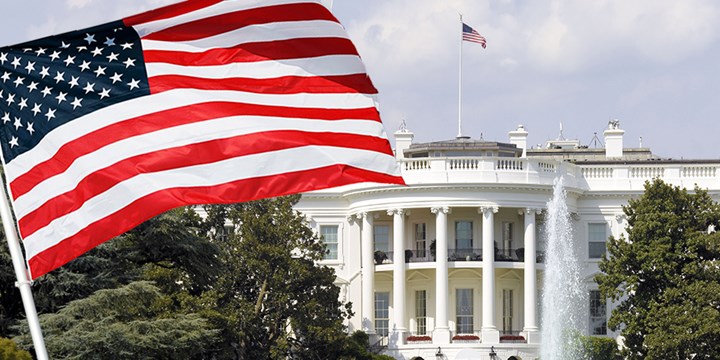The UK, known for ‘gold-plating’ every directive and regulation that emanates out of Brussels, opened a discussion platform in April 2011, to look at how the aims of the existing regulation can be fulfilled in the least burdensome way possible. A contradiction in terms possibly. Aptly named “The Red Tape Challenge”, it shines a spotlight on to different areas of regulation during a 5-week window of discussion for each area. Whilst this interactive campaign-style discussion platform signifies a dramatic shift in the culture of the UK Government, it’s unclear as to what real impact it’s going to have on burdensome legislation emanating out of Brussels. Or on areas like natural healthcare, which are literally bound and gagged by European legislative red tape. That said, ‘you’ve got to be in it, to win it’, so we encourage UK citizens to have their say, if for no other reason than to record just how unhappy many people are living in a tightly regulated, nanny state.
In the 5-week window between the 9th March and 12th April 2012, it’s the turn of the Medicines area, looking at over 250 regulations. Ironically, an area in which many from the natural health sector may well feel there isn’t enough red tape! The medicines area covers 8-sub groups: Medicine; Clinical Trials; Good Laboratory Practice; Blood; Pharmacy; Fees; Traditional Herbal Medicine and Homeopathic Medicines. Given our recent work in the area of traditional herbal medicines, this is definitely an opportunity not to be missed.
Revolving doors
Since 9th March, as part of the Red Tape Challenge, the UK Medicines and Healthcare products Regulatory Agency (MHRA) has been asking the public and businesses which of the regulations under the scope of medicines should be kept, simplified or scrapped. The door to comment is open until 12th April 2012 and we are working with practitioners and businesses to collect data for a full response on the traditional herbal medicines area.
Comments made to the Red Tape Challenge website will go through the MHRA first, who will decide on action to be taken before sending their proposals to a ‘ministerial Star Chamber’. MHRA’s chief executive, Professor Sir Kent Woods acknowledges that "regulations are hugely important”, but they want to ensure they can carry out their work “in the least burdensome way possible whilst ensuring patients are protected”. Commenting on the Red Tape Challenge, UK Health Minister Simon Burns said, "this challenge will give those working in industry and clinicians a vital opportunity to let us know how we can improve the way we regulate or how we can do things differently, whilst ensuring the public is protected". Political rhetoric or genuine hope for change? Time will tell.
The revolving door between the MHRA and the pharmaceutical industry was well demonstrated in a 550-page report by the House of Commons Health Committee released in April 2005. Seven years on, are things any different?
Key challenges for natural health
The single biggest problem facing the ready availability of effective natural health products is the extraordinarily broad grasp of European medicines law, an especially its very broad definition and scope. In order to try and make things clearer for UK stakeholders, the MHRA has put together its Guide to What is a Medicinal Product. But for many this document serves as little more than a reminder that any effective product runs the risk of being shot down by the MHRA’s loaded gun, granted to it by European medicines law.
Presently, the only legal escape from the definition and scope of medicines law is a single sentence in the preamble of an amending 2004 EU directive that allows an exclusion for products that are in ‘clearly’ foods, food supplements, cosmetics or medical devices.
The full implementation of the Traditional Herbal Medicinal Products Directive (THMPD) creates an additional layer of problems. The Directive should theoretically serve only as an optional regime for those products that are eligible to it, but it now seems that the MHRA will be responsive to pressure from a campaign orchestrated by companies that have successfully gained registrations under the Directive’s licensing scheme. It is noteworthy, for example, that the MHRA has recently targeted food supplement products containing valerian, when it’s own guidance recognises a history of food use of the same herb.
The other glaring problem with the THMPD is, of course, the fact that it no longer provides a registration scheme for the broad range of herbal products for which it was originally intended, including products of the great Asian traditions, such as Ayurveda and Traditional Chinese Medicine (TCM).
There is also great uncertainty for practitioners reliant on herbal, botanical and nutritional products. The proposed statutory regulation of herbal practitioners will seek to provide at least some herbal practitioners with a continuation of the benefits granted to them under the long-standing Section 12(1) under UK Medicines Act 1968. But until the final form of the statutory instrument implementing this regulation is available, this cannot be guaranteed. The future for nutritional practitioners is even less certain given that, as yet, no statutory exemption for such practitioners is under consideration.
The biggest problem with the current regulatory regime facing natural health products is the fact that they have no proper regulatory home and are increasingly being forced out of the food supplement regime and are being caught inappropriately by Novel food and medicine law. We have previously characterised this problem as ‘falling between the two stools’ of medicines and food law.
The need to have our say
The Red Tape Challenge provides both your and our opportunity to have our say. In order to gather information from both the practitioner and manufacturing/supply sector, we have prepared a short, 3-page questionnaire that we are distributing as of today. You can print it off here, fill it out and either post or fax it back to us. Or you can fill it out online.
We may all have our own ideas about how the MHRA and Department of Health might react to complaints, criticisms and suggestions, but we feel strongly that this is a valuable opportunity to express our views even if it is only to have them recorded. We would also remind you that creating a paper trail of this type may be invaluable further down the road, including in any future legal challenges.
We’d like to thank UK citizens in advance for any help you can give getting this questionnaire to practitioners, manufacturers and suppliers.
Call to Action
- Distribute questionnaire to all UK practitioners using herbs or nutritional products
- Help to disseminate to manufacturers and suppliers of herbs or nutritional products
- Remember to use the live comments area for the public on the Red Tape Challenge page
ANH Health Choice campaign page








Comments
your voice counts
07 April 2012 at 5:49 pm
Ayurveda is being healthy....the way to live long!
This valuable Science and Traditional herbal drugs prescriptions created by the God of Nature.
Natural herbal medicines protect our life since many thousand years..
We have never heard anyone died or harmed in this.
Many thousand products of chemical drugs from America and other western countries have been created so many unidentify diseases and gave sudden death.
Let us to protect the human life.... in herbal drugs
no anymore threaten by chemical Pharmacopia ....Marphia....
Why this people want to create unnecessary problem to the humanrights??????
Your voice counts
We welcome your comments and are very interested in your point of view, but we ask that you keep them relevant to the article, that they be civil and without commercial links. All comments are moderated prior to being published. We reserve the right to edit or not publish comments that we consider abusive or offensive.
There is extra content here from a third party provider. You will be unable to see this content unless you agree to allow Content Cookies. Cookie Preferences